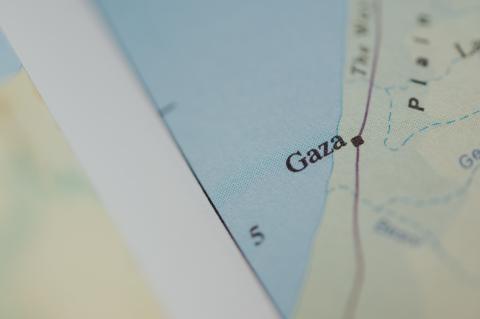
One of many great scenes from The Life of Brian was the depiction of the schism among anti-Roman groups that resulted in the standoff between the Judean People's Front, the Judean Popular People's Front (splitters!), and the People's Front of Judea (splitters!).
It was a not-so subtle reminder that Middle Eastern resistance movements have a well-deserved reputation for splintering. The Israelis and countless Arab autocrats have relied on the principle of 'divide and conquer', knowing that the dividing part is quite easy. It is also one of the reasons why Hizbullah stands out from the crowd — it has exhibited a degree of internal discipline over an extended period of time rarely if ever seen among such groups.
One of the reasons Bashar al-Assad has been able to survive for so long in Syria is because he and his supporters understand the nature of Arab resistance movements, particularly those of an Islamist bent.
Opposition groups have been divided from the beginning by practical issues such as competition for resources. Islamist groups have the added problem of interpretive disagreements. Who is following the true Islamic path in their resistance? Whose leader exhibits the most piety and bravery in battle? Only God knows the real truth and His will must be followed. Unfortunately God's will is a difficult thing to pin down, so it is little wonder schisms are commonplace among the Islamists.
Recent events have again showed just how difficult it is to know who is together and who is split among the armed Syrian opposition. [fold]
Yesterday's announcement that the hard-core Islamic State of Iraq and the levant (ISIL) has agreed to a truce with another Islamist group, Suqur al-Sham, appeared pretty straightforward on the face of it. But Suqur al-Sham had been (or is?) part of the broader, allegedly 'good' Salafist collective known as the Islamic Front, formed in November last year. The Front did nothing to endear itself to the West just a month later when it took over warehouses near the Turkish border belonging to the Western-backed (sort of) secular Free Syrian Army. But the Islamic Front has since begun fighting ISIS, which may have endeared it to some in the West.
'Good' is a relative term given that the Front's vision for Syria (inasmuch as it has one) is that of an Islamic state. But to some in the West and in the Gulf states, the Islamic Front's opposition to AQ-affiliated groups sets it apart from both ISIL and Jabhat al-Nusra (JAN), the al Qaida branch of the Syrian civil war. JAN has been proscribed by most West countries as a terrorist organisation, a view that the group keeps on reinforcing, particularly now that it has spun off an affiliate, JAN in Lebanon, which has been targeting Shi'a in Lebanon with car and suicide bombers. Of course, JAN had a rival for al Qaida's affections: ISIL was originally al Qaida-approved, but it went off the reservation to such an extent that even Ayman al-Zawahiri had to publicly disown it last week.
Confused? You should be. My problem with the policy of arming the 'good' opposition in the Syrian conflict is the complete inability to know who gets what weapons systems, who they are used against, or where they end up. Who is to say that the donated rocket launcher or M4 rifle wasn't captured by the Syrian government when Ahmed the fighter was killed? Maybe it was handed over to the 'not-so-good' opposition or sold for a tidy profit to some Lebanese arms dealer.
The only way anybody can guarantee the end user of weapons is to own the supply chain, including having oversight of the person who uses it. And nobody in the West is willing to do that.
Photo by Flickr user FreedomHouse.
